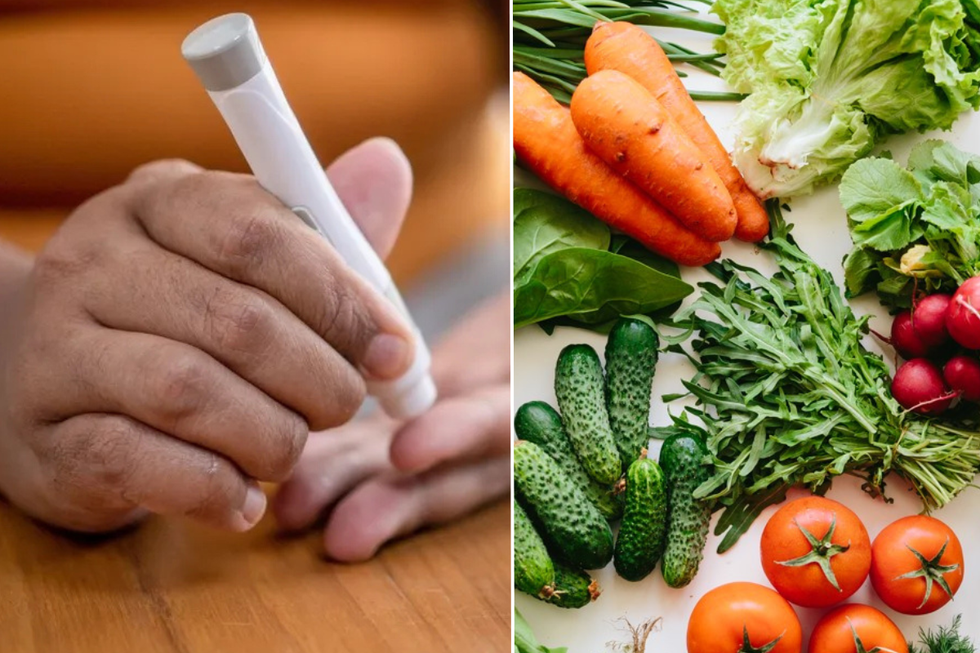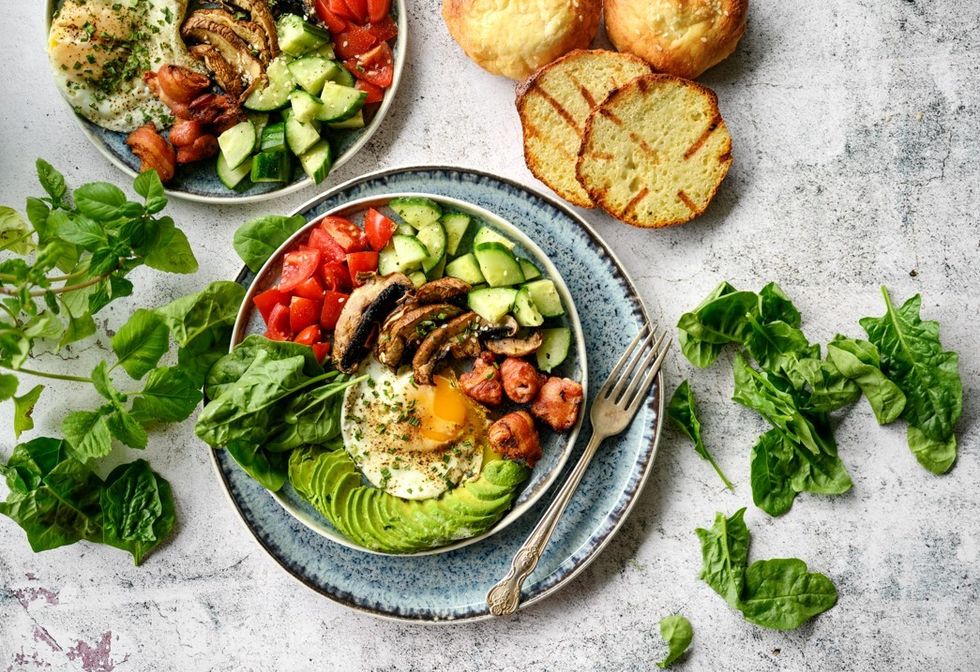Health
Changing when you eat can help you ‘prevent blood sugar dips and overeating’

Blood glucose levels can fluctuate throughout the day, especially for those with conditions such as diabetes.
For anyone who suffers from high blood sugar and the effects of this, a dietitian has exclusively shared changes you can make around what and when you eat.
Cayleigh McKenna (MS, RDN) from Dietitian Live suggested the best types of foods to eat. She also shared the importance of eating regularly, as large gaps between meals can cause crashes.
She said: “Focus on nutrient timings. Avoid long gaps between meals to prevent blood sugar dips and overeating later.

Changing when you eat can help you regulate blood sugar levels
GETTY
“I typically recommend having a small balanced snack or meal every three to four hours.”
When putting together a meal or choosing a snack, what you eat matters. While reducing sugar seems obvious, the health expert shared further guidance.
She suggested reaching for foods high in fibre, protein and healthy fats to stabilise glucose in the blood and keep you feeling satisfied.
Cayleigh continued: “Build balanced meals and snacks by combining fibre-rich carbs (like vegetables, legumes, or whole grains) with protein and healthy fats.
“This will slow glucose absorption and prevent blood sugar spikes. It promotes steady energy and reduces cravings throughout the day.”
Think foods that are high in protein and fats, such as fatty fish (salmon, sardines, mackerel), eggs, walnuts and Greek yoghurt.
Choose high-fibre vegetables such as broccoli, Brussels sprouts and spinach, as well as legumes including lentils, chickpeas and black beans.
Cayleigh added: “Reduce added or excess sugar intake. Cutting back on sugary foods and drinks can prevent rapid blood sugar increases.”
 Look for foods high in fibre and protein GETTY
Look for foods high in fibre and protein GETTY
This comes as an expert highlighted the importance of managing blood sugar levels to prevent fatigue and excessive thirst.
He said ultra-processed carbohydrates – such as white bread, sugary cereals, pasta, and baked goods – as huge contributors to blood sugar spikes. These foods are low in fibre, leading to rapid digestion and increased glucose levels.
To stabilise blood sugar, the health pro also recommended incorporating fibre-rich foods like whole grains, vegetables, and legumes into meals.
